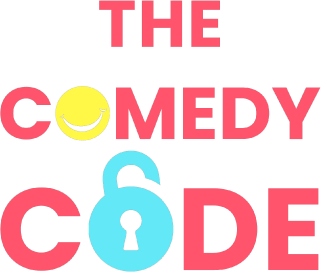Over the last 40 years, improv has evolved from an elevated art form practiced by a tiny percentage of actors with extensive performance experience and training to the near replacement of basic acting training for most actors eyeing a career in comedy.
This is unfortunate and problematic, nowhere more so than Hollywood.
I am an extremely experienced improviser and sketch artist, so this is a subject I take quite seriously. My teachers and mentors were some of L.A.’s best and most experienced instructors of their time. Many were pioneers of the craft from the 1970s, and most notably, Lisa Kudrow, from the ’80s when I was a student.
I have performed on every improv and sketch main stage in Hollywood multiple times over the last 25 years, so with personal knowledge of LA’s comedy landscape, I’ll attempt to clear up confusion and dispel misunderstandings about what improv is and isn’t.
Most importantly, improv isn’t written sketch work. Improv and sketch have become blurred into one general concept to most actors in this era, much to their detriment. And even worse, the entire industry seems confused.
Actors new to Los Angeles are directed – virtually ordered – to get improv training on their résumés in order to become viable candidates for comedy auditions. Improv training can be helpful, no question. But some actors don’t like it or need it. The definition of improvisation is to speak or perform without preparation, primarily for small theater.
Improvising is writing while you’re performing. Sense and structure are the priorities. If you haven’t developed core acting training before you study improv, you could be doing yourself a huge disservice. Yes, when you are improvising you are performing, but if you don’t understand things like intentions, motivations, personalizations, etc. you’re very likely just play-acting. It can be fun and exciting and rewarding in the moment. But is your acting any good? Do you know how to audition? Work with the camera? Take adjustments within seconds?
Improv has its benefits, but on the pie chart of acting training, it’s just a slice. Performing written sketch is a closely related but vastly different scenario. There is a greater benefit to practicing sketch. Whereas improv is spontaneous and provides instant gratification, writing and performing a sketch show takes time, trial, effort, direction, and dedication.
It’s stage work, yes, but performing written sketch helps develop a skill set that more closely resembles that required of a working actor: breaking down scripts, getting off script, and making choices that require real stamina (character, emotional, and intentional). The performance must live beyond a moment which can easily be shrugged aside with a chuckle if not successful.
Improv training is not acting training. It is an acting training technique. It was not originally devised to be an end goal for performers. There is no improv industry, except for corporate gigs and private events. With extremely rare exception, actors do not improvise in auditions or on set.
Many now famous performers came from these venues, so I understand the allure to train within them. However, what most people aren’t getting is that those performers wrote and produced their careers. Tina Fey, Amy Poehler, Will Ferrell, Mike Meyers, Melissa McCarthy, Kristen Wiig, Andy Samberg, et al., are writers and writing is what drove their careers. They didn’t improvise their way to fame, they wrote their way to it. I think too many players in the industry misunderstand that.
There was an era when honing improv and sketch work was valuable, but I think that time has peaked, and we are living through its declining value. The entertainment industry is entirely digital now. Casting moves like lightning and only actors highly trained in audition technique with a great online presence have a shot at booking. Actors are better advised to invest in a home studio with great lighting and a clear understanding of what producers expect from a self-tape audition. With the vast majority of auditions occurring through self-tapes now, you should really ask yourself – who’s going to ask me to improvise and who would I even improvise with?

